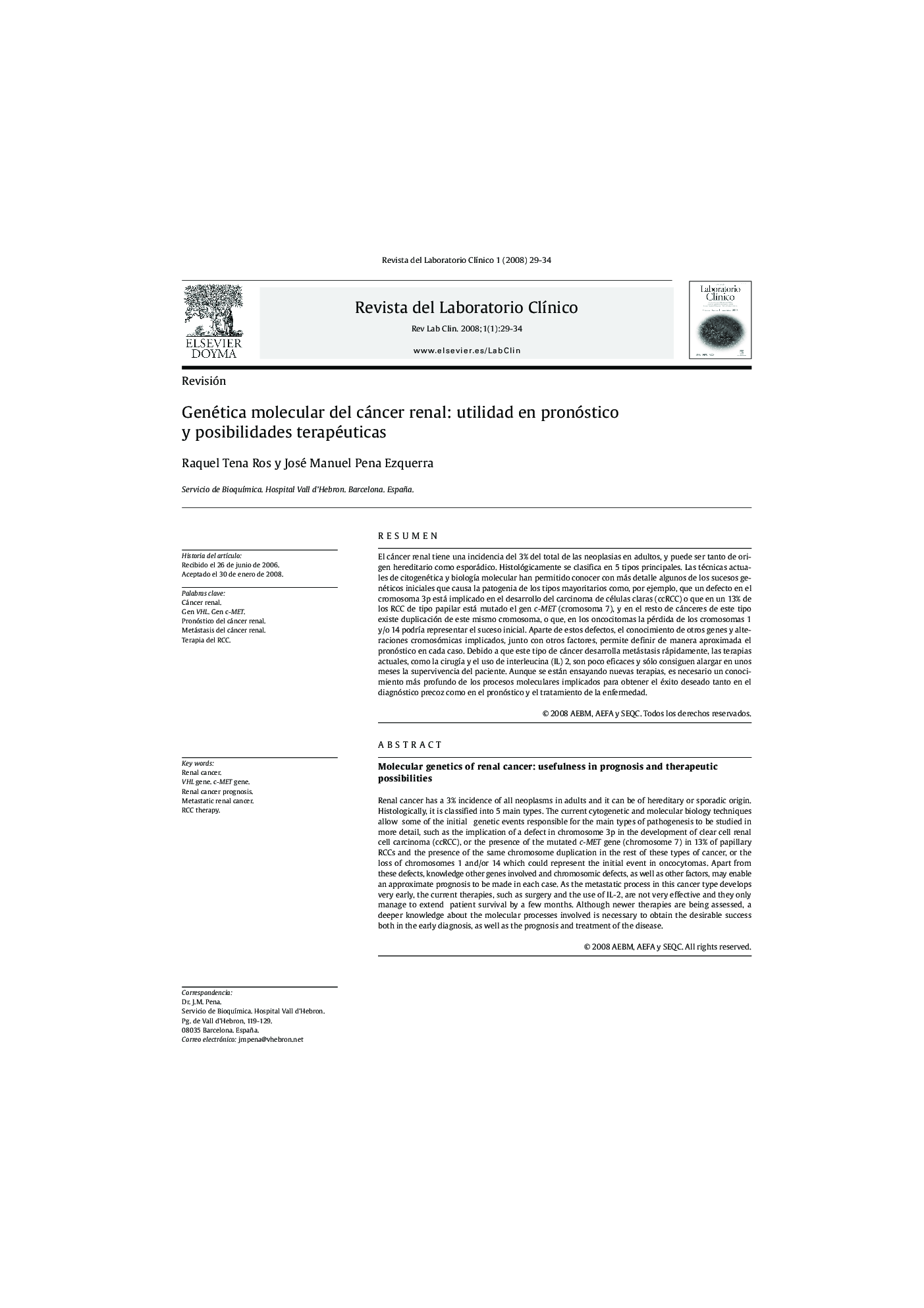| Article ID | Journal | Published Year | Pages | File Type |
|---|---|---|---|---|
| 2578508 | Revista del Laboratorio Clínico | 2008 | 6 Pages |
Abstract
Renal cancer has a 3% incidence of all neoplasms in adults and it can be of hereditary or sporadic origin. Histologically, it is classified into 5 main types. The current cytogenetic and molecular biology techniques allow some of the initial genetic events responsible for the main types of pathogenesis to be studied in more detail, such as the implication of a defect in chromosome 3p in the development of clear cell renal cell carcinoma (ccRCC), or the presence of the mutated c-MET gene (chromosome 7) in 13% of papillary RCCs and the presence of the same chromosome duplication in the rest of these types of cancer, or the loss of chromosomes 1 and/or 14 which could represent the initial event in oncocytomas. Apart from these defects, knowledge other genes involved and chromosomic defects, as well as other factors, may enable an approximate prognosis to be made in each case. As the metastatic process in this cancer type develops very early, the current therapies, such as surgery and the use of IL-2, are not very effective and they only manage to extend patient survival by a few months. Although newer therapies are being assessed, a deeper knowledge about the molecular processes involved is necessary to obtain the desirable success both in the early diagnosis, as well as the prognosis and treatment of the disease.
Related Topics
Life Sciences
Biochemistry, Genetics and Molecular Biology
Clinical Biochemistry
Authors
Raquel Tena Ros, José Manuel Pena Ezquerra,
